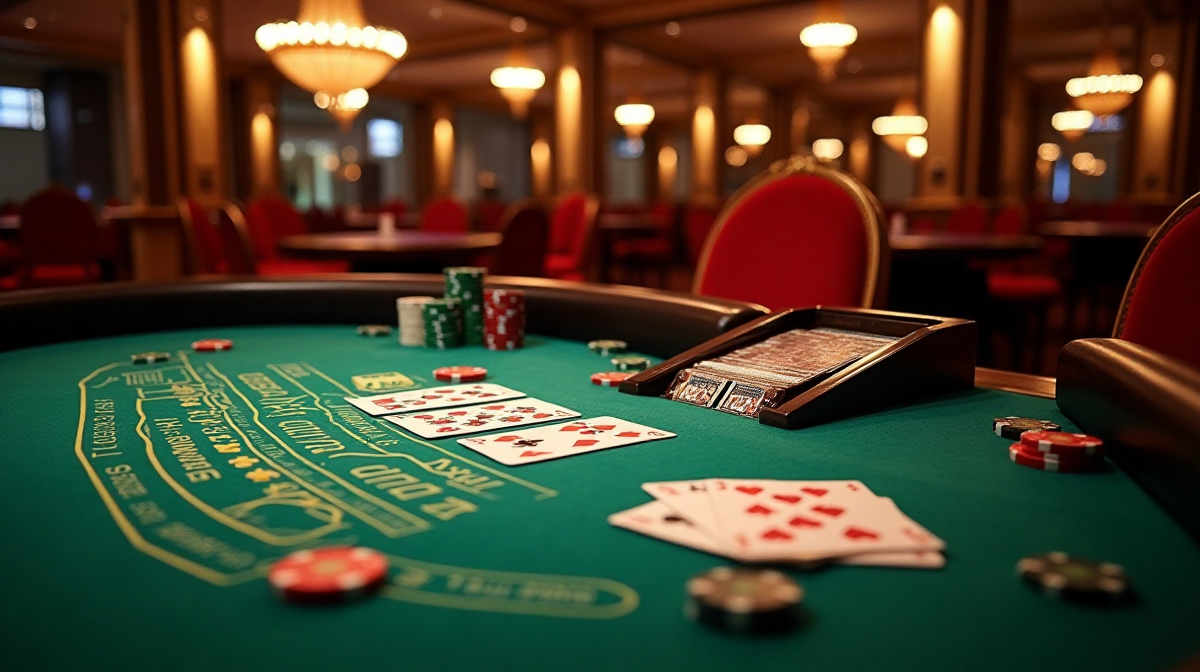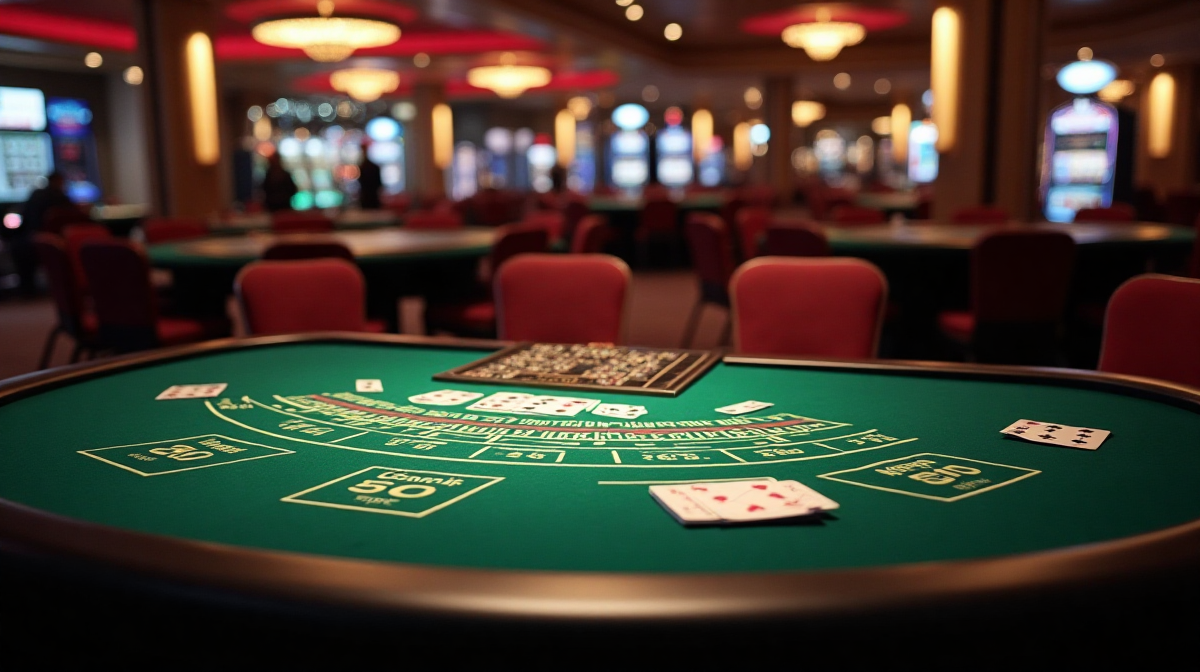Blackjack: Learn to Play in Minutes!
What is Blackjack? - A Brief History & Popularity
Blackjack, also known as 21, is one of the most popular casino games in the world. Its origins can be traced back to the early 1800s in France, where it was called Vingt-et-Un (Twenty-One). The game eventually made its way to the United States, particularly to the gambling saloons of the Old West, where it gained its current name. Today, blackjack is a staple in casinos globally, and increasingly, a popular online game. Many even integrate sports betting alongside casino games, with sites offering a turkey bet on various events.
Why Learn Blackjack? - Low House Edge & Skill Factor
Unlike many casino games that rely heavily on luck, blackjack offers players a significant degree of control over their outcomes. This is because the game has a relatively low house edge, especially when played using basic strategy. The skill factor involved means that informed players can drastically improve their odds. For those interested in combining a bit of luck with strategic thinking, considering a turkey bet alongside blackjack can be a fun option.
Is Blackjack Gambling? - Understanding the Risk & Reward
Yes, blackjack is undeniably a form of gambling. It involves wagering money on the outcome of a game of chance. However, it’s crucial to understand the risk involved and gamble responsibly. While skill can improve your odds, there's always an element of luck. Many platforms now offer insights, even a turkey bet today prediction, but remember these are never guarantees.
The Basics: Blackjack Terminology & Objective
Understanding the Goal - Getting Closer to 21
The primary objective of blackjack is to beat the dealer by having a hand value closer to 21 than the dealer’s hand, without exceeding 21. Exceeding 21 results in a bust and an automatic loss.
Key Terms: Dealer, Player, Hit, Stand, Bust
Let's define some essential terms. The Dealer represents the casino and distributes the cards. The Player is you, the gambler. A Hit means to request another card. Stand indicates you don't want any more cards. Bust means your hand exceeds 21.
Card Values - Ace, 2-10, Jack/Queen/King
Number cards (2-10) are worth their face value. Jack, Queen, and King are each worth 10. An Ace can be worth either 1 or 11, depending on which value benefits the hand most.

Gameplay: A Step-by-Step Guide
The Deal - How Cards Are Distributed
The game typically begins with the dealer dealing two cards face up to each player and two cards to themselves – one face up and one face down.
Player Turn - Choosing to Hit or Stand
Starting with the player to the dealer’s left, each player has the opportunity to improve their hand by hitting (taking another card) or standing (keeping their current hand). This continues until all players have finished their turns.
Dealer Turn - House Rules Explained
Once all players have acted, the dealer reveals their face-down card. The dealer must follow specific rules, typically hitting until their hand value is 17 or higher. These rules are consistent and dictated by the casino.
Winning & Losing - Determining the Outcome
If the player’s hand is closer to 21 than the dealer’s without busting, the player wins. If the dealer busts, all remaining players win. If the player busts, they automatically lose. If both the player and dealer have the same hand value, it’s a push and the player's bet is returned. Some might even place a turkey bet on the outcome for added excitement.
Basic Strategy: Maximizing Your Chances
What is Basic Strategy? - Reducing the House Edge
Basic strategy is a mathematically derived set of rules that tells you the optimal way to play every hand, given your hand and the dealer’s upcard. Using basic strategy significantly reduces the house edge.
Hard Hands - Strategy for hands without an Ace treated as 11
Hard hands are hands where the Ace is counted as 1, or there is no Ace at all. Charts are readily available online detailing the best action for each hard hand total against each dealer upcard.
Soft Hands - Strategy for hands with an Ace treated as 11
Soft hands are hands where the Ace is counted as 11. Strategy for soft hands differs from hard hands, again with readily available charts outlining the optimal play.
Splitting Pairs - When and Why to Split
If you are dealt a pair (two cards of the same rank), you have the option to split them into two separate hands. Splitting is beneficial in certain situations, such as when you have a pair of Aces or Eights.
Doubling Down - Optimal Situations for Doubling
Doubling down allows you to double your initial bet in exchange for receiving only one additional card. This is advantageous in specific scenarios, such as when you have a hand total of 11 or a hard 10 against a dealer’s upcard of 9 or less.
Surrendering - Knowing When to Cut Your Losses
Some casinos allow you to surrender your hand after the initial deal, forfeiting half of your bet. This is a good option if you have a particularly weak hand against a strong dealer upcard.
Blackjack Variations: Exploring Different Rules
American Blackjack vs. European Blackjack - Key Differences
American Blackjack typically allows both the player and the dealer to hit on soft 17, while European Blackjack usually requires the dealer to stand on soft 17. This difference affects the house edge.
Spanish 21 - A Popular Variation
Spanish 21 uses a 48-card deck (removing the 10s) and offers various bonus payouts.
Blackjack Switch - Unique Card Switching Option
Blackjack Switch allows players to switch the top cards between their two hands.
Continuous Shuffling Machines - Impact on Strategy
CSMs shuffle the cards after each hand, making card counting ineffective. This version of the game reduces the impact of basic strategy. Predicting the outcome is difficult even with a turkey bet today prediction.

Blackjack Etiquette & Casino Tips
Proper Casino Behavior - Respecting Dealers & Other Players
Be respectful to the dealer and other players. Avoid giving unsolicited advice.
Bankroll Management - Smart Betting Strategies
Set a budget before you start playing and stick to it. Avoid chasing losses.
Avoiding Common Mistakes - Pitfalls to Watch Out For
Don't deviate from basic strategy based on hunches. Understand the rules of the specific game you're playing.
Recognizing Card Counting
Card counting involves tracking the ratio of high to low cards remaining in the deck. While it's not illegal, casinos may ask card counters to leave.
Practice Resources & Further Learning
Online Blackjack Simulators - Free Practice Tools
Numerous websites offer free blackjack simulators where you can practice basic strategy without risking any money.
Recommended Books & Websites - Expanding Your Knowledge
Books like Beat the Dealer by Edward O. Thorp and websites dedicated to blackjack strategy can provide valuable insights.
Blackjack Apps – Learning on the Go
Several mobile apps allow you to practice blackjack on your smartphone or tablet.
A Final Word – Enjoy and Play Responsibly!
Blackjack is a fun and engaging game. Remember to play responsibly and within your means. While a turkey bet might add a little extra thrill, always prioritize responsible gambling. Learning how to play blackjack is just the first step – mastering strategy and practicing discipline are key to long-term success.

